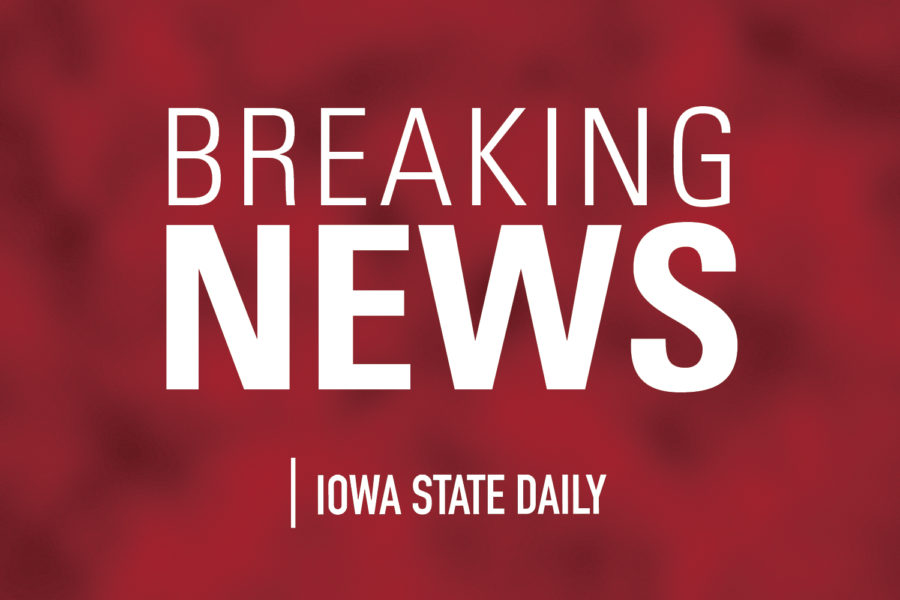Sixty-six additional cases of COVID-19 in Iowa, two additional deaths
The Office of the President releases new information regarding masks, vaccinations and how the fall 2021 semester will look.
April 2, 2020
Editor’s Note: This article was updated with new information following Gov. Kim Reynolds’ 2:30 p.m. press conference.
The Iowa Department of Public Health (IDPH) has announced an additional 66 positive COVID-19 cases in Iowa along with two reported deaths, according to an April 2 press release from Gov. Kim Reynolds’ office.
The additional 66 cases bring the total of positive Iowa cases to 614. The two reported deaths were both older adults, ages 61-81, of Linn County.
According to the press release, a Des Moines county resident previously reported to be positive for COVID-19 was actually negative, and a positive case previously identified from Poweshiek County was actually from Linn County.
The locations and ages of the 66 new individuals positive for COVID-19 according to the IDPH are:
- Allamakee County, 1 child (0-17 years), 2 adults (18-40 years), 4 middle-age adults (41-60 years), 1 older adult (61-80) years
- Black Hawk County, 1 middle-age adult (41-60 years)
- Boone County, 1 middle-age adult (41-60 years)
- Bremer County, 1 middle-age adult (41-60 years)
- Buchanan County, 1 adult (18-40 years)
- Cedar County, 1 adult (18-40 years), 1 middle-age adult (41-60 years)
- Cerro Gordo County, 2 middle-age adults (41-60 years)
- Clay County, 1 middle-age adult (41-60 years)
- Clinton County, 2 adults (18-40 years), 1 older adult (61-80 years)
- Dallas County, 1 adult (18-40 years), 3 middle-age adults (41-60 years)
- Delaware County, 1 older adult (61-80 years)
- Jefferson County, 1 adult (18-40 years)
- Johnson County, 1 adult (18-40 years), 3 middle-age adults (41-60 years)
- Jones County, 1 middle-age adult (41-60 years)
- Linn County, 3 adults (18-40 years), 4 middle-age adults (41-60 years), 1 older adult (61-80 years), 1 elderly adult (81+)
- Mahaska County, 1 middle-age adult (41-60 years)
- Marshall County, 1 middle-age adult (41-60 years)
- Muscatine County, 1 adult (18-40 years)
- Polk County, 2 adults (18-40 years), 1 middle-age adult (41-60 years), 3 older adults (61-80 years)
- Poweshiek County, 1 middle-age adult (41-60 years)
- Scott County, 3 middle-age adults (41-60 years), 1 older adult (61-80 years)
- Tama County, 2 adults (18-40 years), 1 middle-age adult (41-60 years)
- Van Buren County, 1 older adult (61-80 years)
- Warren County, 1 adult (18-40 years), 1 middle-age adult (41-60 years)
- Washington County, 1 adult (18-40 years), 1 older adult (61-80 years)
- Winneshiek County, 1 older adult (61-80 years)
- Woodbury County, 2 adults (18-40 years), 1 middle-age adult (41-60 years)
Gov. Reynolds updated the Proclamation of Disaster Emergency to extend business closures, suspensions of “non-essential and elective surgical data and orthodontic” procedures, provide additional regulatory relief and continue the order to limit gathering to 10 or less until April 30. School closures are also extended through April 30.
“Keeping Iowan students out of classrooms is a very difficult decision, but it remains necessary for now,” said Reynolds.
Gov. Reynolds said that there are options for continuous learning, and schools districts will be required to select options for continuous learning and inform the state by April 30.
“School districts that choose not to provide continuous learning will be required to make up the instructional time lost beyond what has been waived by the legislature,” said Reynolds.
Gov. Reynolds introduced Ann Lebo, director of the Iowa Department of Education, to give more information about the state’s educational plan.
Lebo said the state is requiring school districts to indicate whether they are using the voluntary or required models of continuous learning from April 13 to April 30, while they are still off school. Lebo said the districts will have until April 10 to submit their decision.
“We have developed an expedited application process for any school that wants to implement a required continuous learning program,” said Lebo. “We encourage schools to work as quickly as possible on their plans, which may include the delivery of content through online learning, paper packets of assignments or both.”
Lebo said school districts are not required to apply for continuous learning; however, the Department of Education will follow up to ensure the missed instructional time is made up “in a manner that is appropriate in accordance with circumstances at that point in time.”
Gov. Reynolds also introduced Dr. Caitlin Pedati, the state medical director and epidemiologist, who spoke about how the state is using data to assess COVID-19.
Pedati said the state looks at trends of how many Iowans are sick in the last 14 days, the percentage of the population over 65 and long-term care facility outbreaks.
“I want to say thank you to all of the businesses, schools and of course our healthcare workers, all of the people who have helped us implement the measures that we have recommended, and to all Iowans who are following the guidance we give which is so important to do,” said Pedati.
An established public hotline for Iowans with questions about COVID-19 is available 24/7. Those with questions can call the hotline at 2-1-1 or 1-800-244-7431. The state of Iowa has started sharing the number of negative tests conducted at outside labs and is providing additional information on the conditions of those infected with COVID-19, according to the press release.
The complete livestream can be found on Gov. Reynold’s Facebook page.







